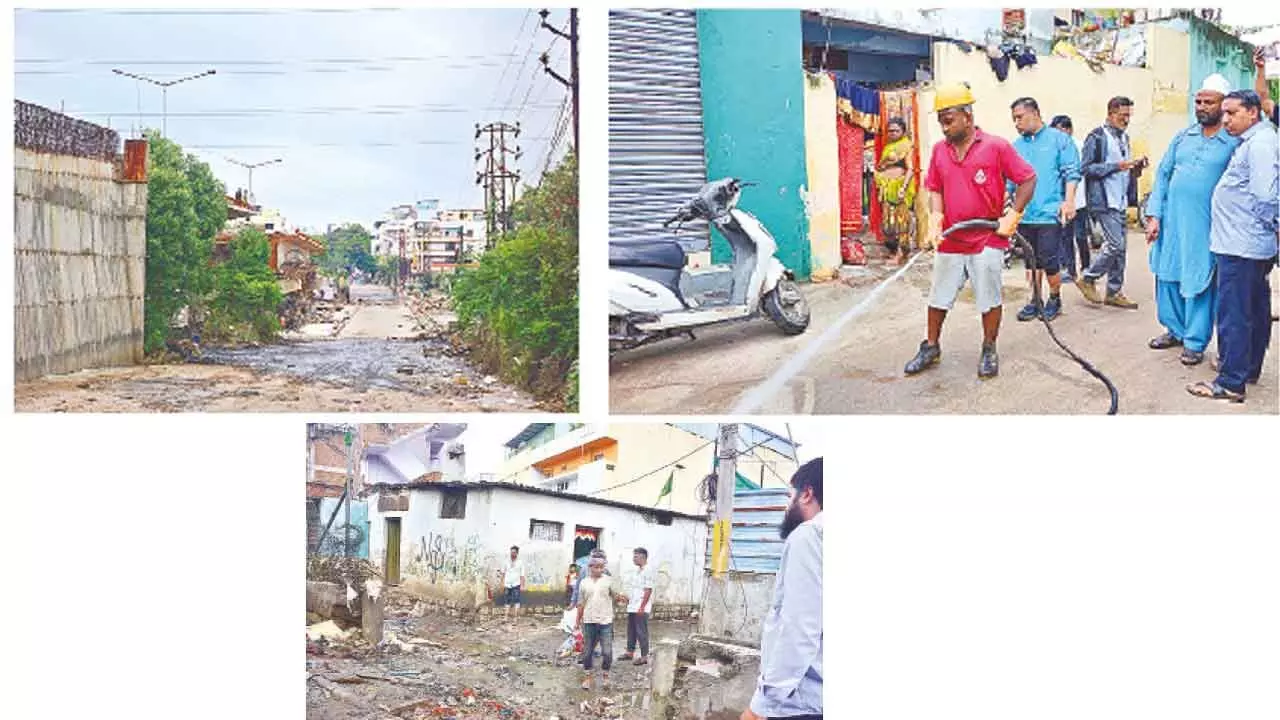Hyderabad has faced severe flooding due to recent heavy rains, affecting many parts of the city. This has raised concerns about potential health issues for residents in these areas. Flooding has spread mud, garbage, and water hyacinth, especially near the Musi River.
The city experienced intense rainfall last week, leading to water bodies overflowing and flooding in low-lying neighborhoods. Homes near the Musi River were particularly affected, with water entering residences. Although the rains have stopped, residents continue to deal with the aftermath. Besides losing belongings and vehicles, they now face health challenges.
Even though water levels have decreased, mud, debris, and water hyacinth are still present, leading to mosquito breeding. Flood-hit areas like Langar Houz, Asadbaba Nagar, Kishanbagh, and Jiyaguda are struggling. The water, mixed with sewage and garbage, poses a risk of spreading diseases. It contaminates water used for drinking and other purposes.
Mohammed Sohail, from Moosa Nagar, described how his home was filled with garbage and mud. “The water damaged everything, and sewage overflow has created a foul odor,” he said, noting many locals are suffering from illnesses.
Residents report lacking essentials like clothes and bedsheets. “After days in the water, we’re dealing with cold, cough, fever, and skin allergies,” said Maheshwari from Padma Nagar. They are relying on basic medicines to cope.
Authorities have begun medical checkups and are distributing medicines in affected areas. The GHMC, local NGOs, and volunteers are providing food and necessities. Medical teams and NGOs are actively involved in health checks and aid.
The GHMC has started cleanup operations in flooded areas, focusing on clearing debris, desilting, and improving sanitation. An official stated that roads and alleys are being cleared, and pumps are removing stagnant water. Desilting of drains and areas near the Musi River is ongoing.
To combat vector-borne diseases, the sanitation team is spraying disinfectants and bleach on roads. “Our workers are working hard to prevent disease outbreaks,” the official added.
More than 1,400 people from the Musi flood zones have been moved to temporary shelters in schools and community halls, which are now serving as rehabilitation centers.








